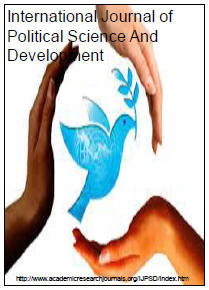| IJPSD |
International
Journal of Political Science and Development |
||||||||||||||||||||||
|
International Journal of Political Science and Development Vol. 3(2), pp. 85–100, February, 2015. DOI: 10.14662/IJPSD2015.010 ISSN: 2360-784X
Research Paper
The Political Economy of Administrative Corruption: Boundary Politics in Post-Colonial Tanzania
Ronald Aminzade
Department of Sociology, University of Minnesota. E-mail: aminzade@umn.edu. Phone: 612-624-9570
Accepted 16 February 2015
This historical research uses the concept of boundary politics to
analyze the impact of shifting economic development policies on grand
administrative corruption in the East African country of Tanzania. It
documents how development policies reconfigured public/private and
national/transnational boundaries, thereby altering legal definitions of
what constituted corruption, fostering different types of grand
corruption, and changing opportunities and incentives for grand
administrative corruption. After documenting how colonial legacies of
racialized class formation and bureaucratic state formation created the
key actors involved in grand administrative corruption, the paper
explores the effect of the following policies that defined socialist and
neoliberal development strategies: nationalization and privatization,
regulation and deregulation, and implementation and elimination of a
Leadership Code for civil servants. Boundary reconfigurations are
historically situated in the broader long-term historical context of
Tanzanian socialist and neoliberal economic development policies. The
research also documents how the shift from an authoritarian to a
liberalized political system made possible a public discussion that
transformed corrupt administrative practices into public scandals,
thereby fostering political contention over the boundaries created by
neo-liberal development policies. Cite This Article As: Aminzade R (2015). The Political Economy of Administrative Corruption: Boundary Politics in Post-Colonial Tanzania. Inter. J. Polit. Sci. Develop. 3(2): 85-100.
|
|
|||||||||||||||||||||
